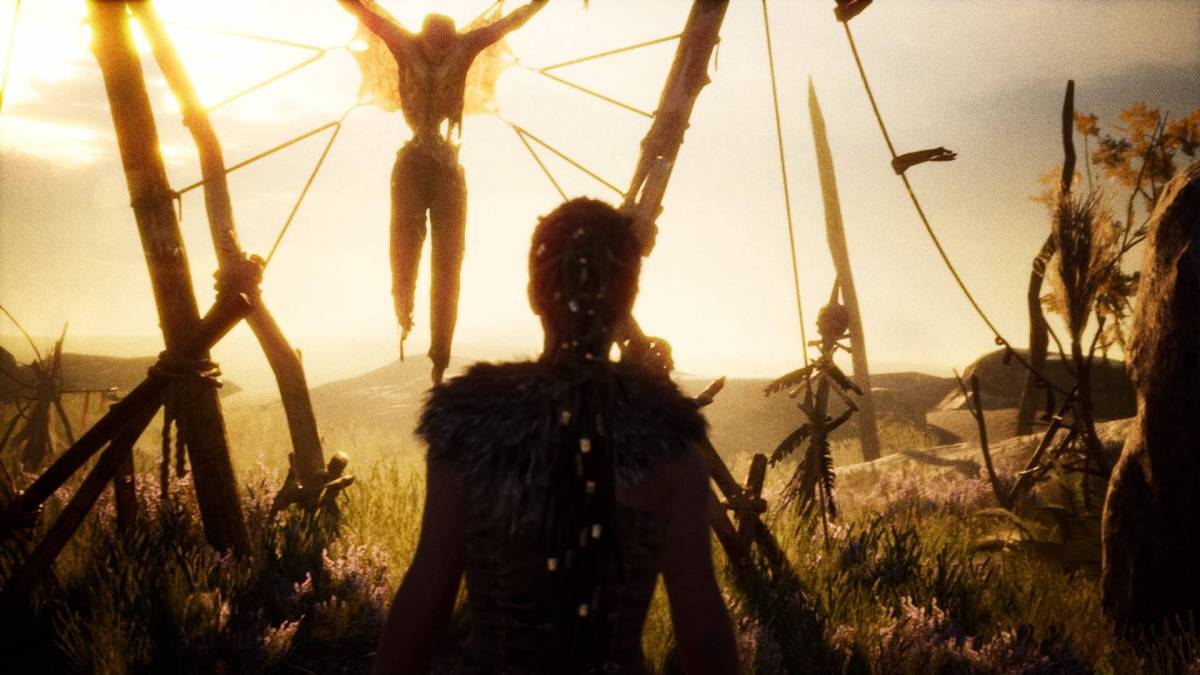Developer: Ninja Theory
Publisher: Ninja Theory
Platform(s): PS4, PC
Our 50 best games of the year countdown isn’t in any order, we’re just going through fifty of the finest the year has given us. Find out more here.
Many games have broached mental health in the past, often to differing results. Some used it (pretty tastelessly) as reasons for villainy while others used it merely as a gimmick that did nothing for the experience. Mercifully, Ninja Theory’s Hellblade approached mental health with the care such a sensitive subject deserves while also delivering a thoroughly entertaining and gripping game in the process.
Without wanting to spoil too much of the story, Senua is on a quest in a strange land which unfolds over time with plenty of mysteries revealed along the way. However, it isn’t as simple as Senua wading through demons with her sword – she has her own demons to defeat.
Hellblade represents Senua’s suffering in ways that never feel cheap or phoned-in. Ninja Theory spent a lot of time with those in the mental health community to strike the right balance, and it shows. While Senua is on the “extreme” end of the spectrum, the whispers of doubt that plague her (while also acting as her guides) are relatable to anyone who’s ever been at the bottom, myself included. Likewise, mental health issues can often feel like a solitary problem, so for Senua to have nobody but her undependable self to depend upon is a fair reflection of reality. She has a crutch, but once that gets temporarily taken away, everything crumbles.
As for the gameplay, it’s the same tight combat we’ve come to expect from the guys who made Enslaved and DmC: Devil May Cry. While Hellblade doesn’t boast what you’d call a complex combat system, it’s a more realistic and grounded approach that works wonders. Senua tires easily and can’t pull off absurd combos, giving the feel of a more “raw” way of dicing up demons than anything Ninja Theory have tried before. It gets challenging towards the game’s latter stages, but never once feels unfair – even with the permadeath bluff looming over early players.
It’s also hard to discuss Hellblade without mentioning its production, which saw Ninja Theory strive for AAA quality on an indie budget. Using high-end motion capture technology, they were able to produce some of the best facial animations I’ve seen in any game to date (regardless of budget), which makes every wince and scream of Senua’s feel that much more impactful.
Hellblade: Senua’s Sacrifice is a difficult game, and not because of how hard it is to play. It’s utterly unflinching in its representation of mental health and may be one of the most important games of 2017 as a result, which I mentioned in my review:
“At its heart, when you strip everything away, Hellblade is a frank and unrelenting warning about helping others, to not let them drift further and further towards darkness. For that reason alone, Hellblade may just be the year’s most vital game.”
Some of the coverage you find on Cultured Vultures contains affiliate links, which provide us with small commissions based on purchases made from visiting our site.

